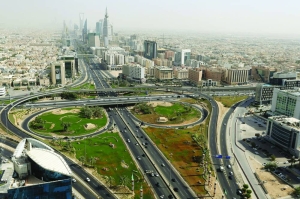Saudi FDI struggles cast shadow over economic transformation plan

Inflows amounted to $9.7bn in the first six months of 2024, according to data released Monday by the Saudi General Authority for Statistics. That’s just a touch higher than the prior year, when Saudi Arabia had its worst first-half haul since 2020. Still, FDI picked up 14.5% in the second quarter from the first, to $5.2bn.
The kingdom is targeting FDI inflows of $29bn this year as Crown Prince Mohammed bin Salman seeks more cash to drive his multi-trillion dollar plan to diversify the economy away from oil. To meet that goal now, Saudi Arabia would need one of its biggest second-half hauls ever.
Riyadh has been falling short of its goals to draw in capital, with major investments and deals outside of the energy space slow to materialize in recent years. The country hopes to hit $100bn of FDI annually by 2030, roughly three times more than it has ever achieved. Inflows have averaged just over $17bn a year from 2017-2022.
“One key impediment to the diversification of the economy is Saudi Arabia’s struggle to entice foreign investment,” Capital Economics said in a research report last week. It highlighted high barriers to entry and lingering concerns of reputation risk as key challenges.
The need for funding is becoming ever more acute against the backdrop of weak oil prices that have pushed the budget into a deficit. Already, the country is re-prioritizing projects due to funding constraints.
Riyadh has been one of the top issuers of sovereign debt in emerging markets this year. Local banks and the kingdom’s sovereign wealth fund have also been leaning on bond investors, while oil giant Saudi Aramco, which pays hefty dividends to the government, sold $3bn in notes last week.
To be sure, there’s been a recent flurry of activity that might lead to a pickup in inflows. Wall Street advisory firm PJT Partners is planning to increase headcount in the kingdom, Adam Neumann is expanding his real estate company with new projects in the country and UAE-based Aster DM Healthcare is looking to buy up to $250mn in Saudi assets.
To encourage more capital from abroad, Saudi Arabia recently introduced reforms to its investment laws. The new rules, which are due to take effect in 2025, aim to cut bureaucratic red tape and make it easier for foreign investors to do business locally.
Capital Economics called the update a potential “gamechanger” in attracting more foreign cash to the kingdom. Still, “weak FDI remains a problem,” it said.



